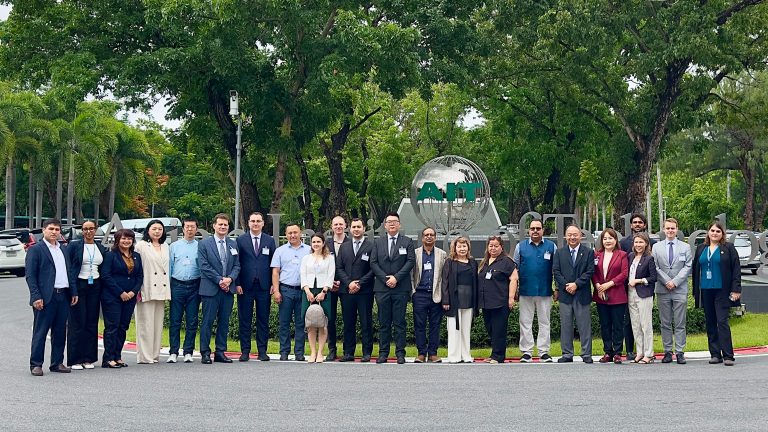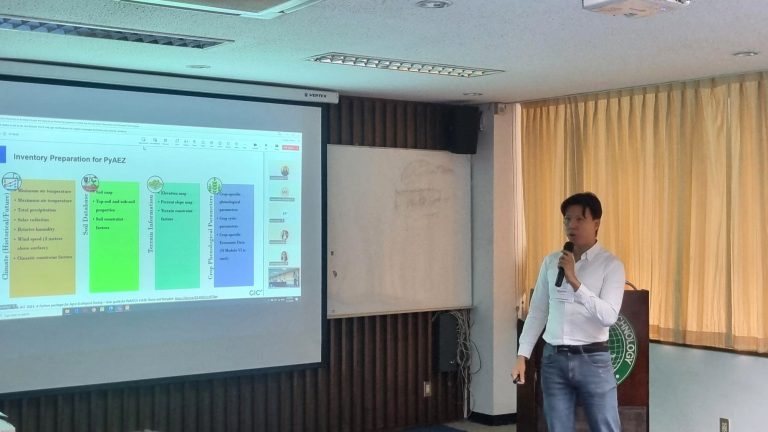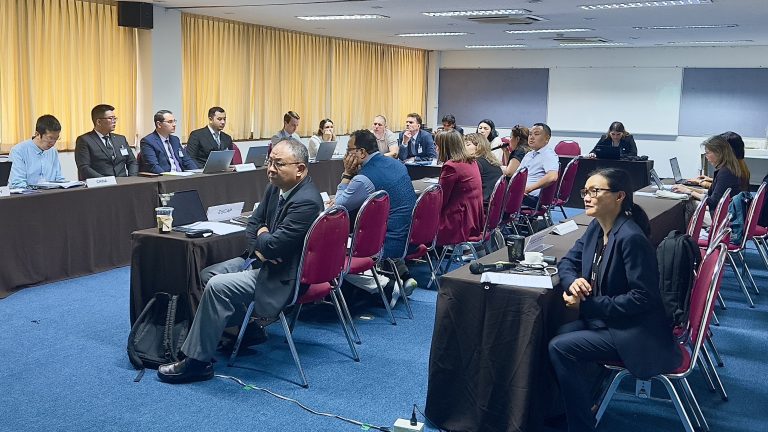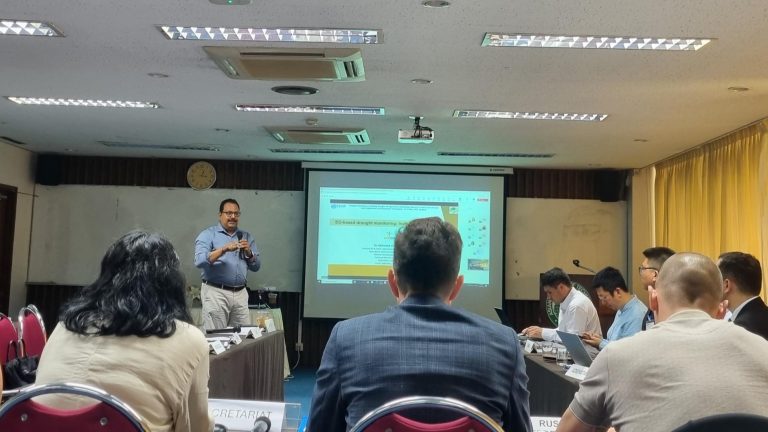
Overview
ESCAP is launching a project to enhance the capacity of Central Asian countries to use Earth Observation and geospatial tools with statistical data for drought and crop monitoring. The project, supported by the Russian Federation, will focus on Kyrgyzstan, Tajikistan, and Uzbekistan. It will leverage regional expertise and partner with local institutions to develop an operational drought monitoring system and cloud-based crop monitoring system. The inception workshop serves as a crucial starting point for this project, bringing together government officials, technical experts, and key stakeholders from Kyrgyzstan, Tajikistan, and Uzbekistan.
This workshop was jointly organised by ICT and Disaster Risk Reduction Division of the United Nations Economic and Social Commission for Asia and the Pacific (ESCAP) and Geoinformatics Center, Asian Institute of Technology from 13-15 May 2025 at the AIT Conference Center. Our director, Dr. Manzul Kumar Hazarika presented opening remarks for this inception workshop along with Mr. Keran Wang, Chief, Space Applications Section, ESCAP.
Workshop Highlights
Day 1: featured four sessions that provided a comprehensive introduction to the project. These included country presentations on current drought monitoring practices, progress updates, and the challenges faced, as well as technology and solution demonstrations. In Session 3b, GIC’s technology, PyAEZ, was presented by Senior Research Associate Mr. Swun Wunna Htet. His presentation covered the Agro-Ecological Zoning (AEZ) timeline and development cycle, along with the challenges encountered during its evolution. He also detailed the inventory preparation process and the system requirements for running PyAEZ. Mr. Htet explained the six core modules of PyAEZ and their practical applications, illustrating each with relevant output examples. Additionally, he addressed how PyAEZ manages the harmonisation of spatial data from layers with differing resolutions, which led to an engaging discussion on the platform’s capabilities in this area.
Day 2: focused on current agricultural monitoring across Uzbekistan, Krygyzstan and Tajikistan and demonstration of various agricultural monitoring technologies. On the last day, participants visited Space Krenovation Park (SKP), GISTDA and the Space Museum as a part of the technical visit.
The key outcomes of this workshop included introduction of the project’s goals, implementation strategy, and anticipated outcomes to stakeholders in Kyrgyzstan, Tajikistan, and Uzbekistan, and build a shared understanding of the project’s vision and roadmap. Further, the participants were equipped with foundational knowledge of EO and geospatial applications relevant to monitoring droughts and agricultural conditions in these countries, laying the groundwork for further capacity-building efforts.



